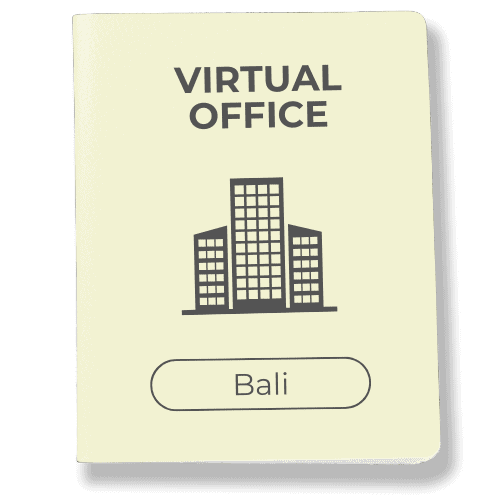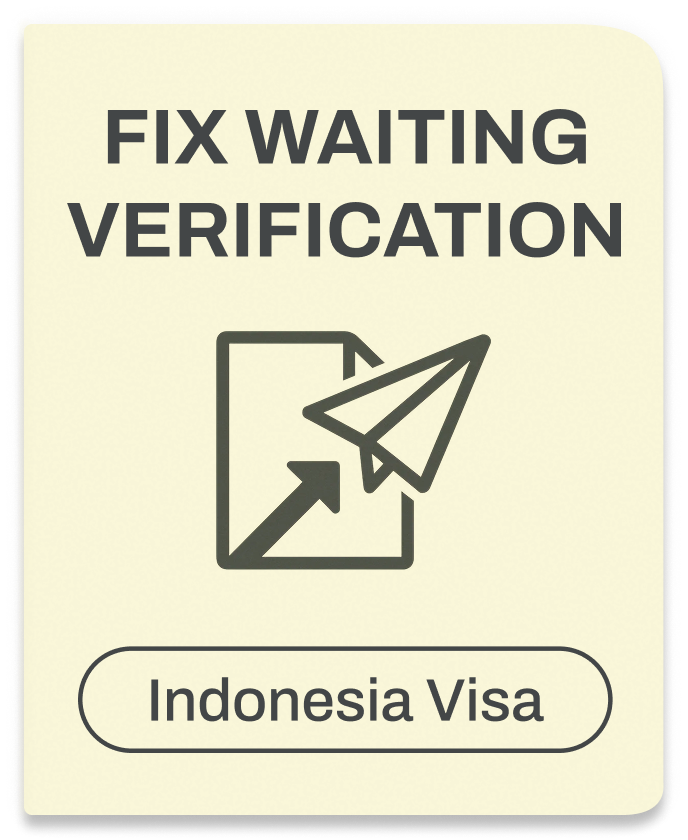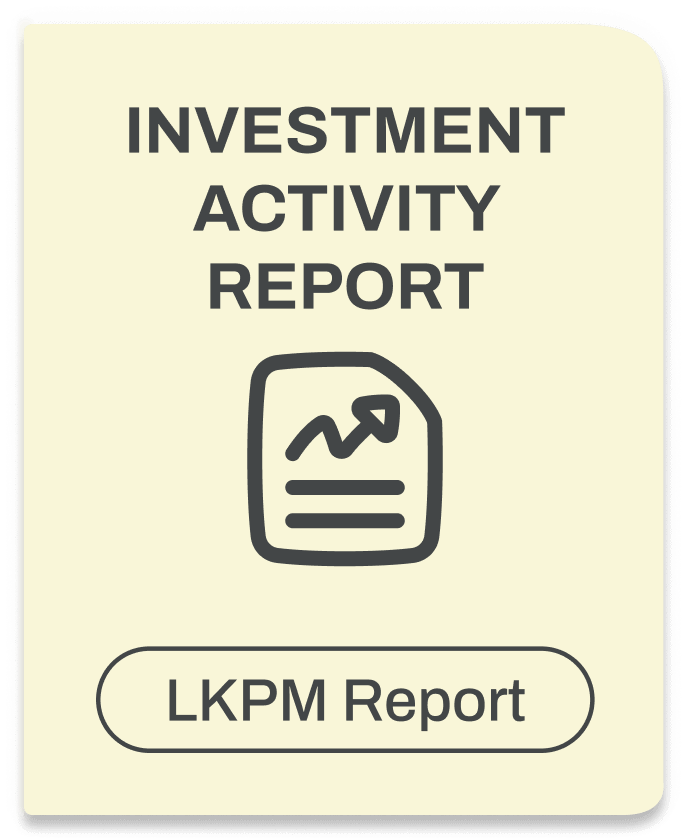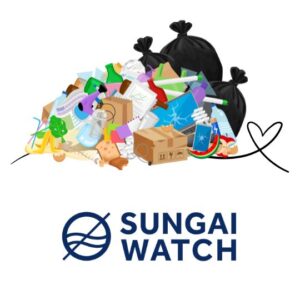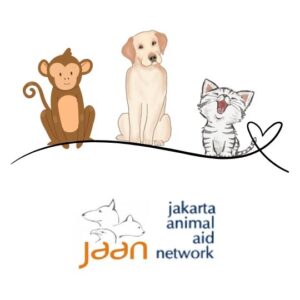Halal Certification Indonesia (2026): Complete Guide

Indonesia is home to the world’s largest Muslim population, making halal certification crucial for businesses operating in this massive market. If you’re selling food and beverage products, cosmetics, pharmaceuticals, or certain chemical products in Indonesia, you need to understand these requirements.
Critical Deadlines You Can’t Miss:
- Medium and large domestic food and beverage companies plus slaughter facilities: Phase 1 ended October 17, 2024
- Small businesses (UMK/MSMEs) in the food and beverage and slaughter sectors: Must comply by October 17, 2026
- Imported food and beverage products: Extension available but no later than October 17, 2026
These requirements are mandated under Indonesian law, specifically Law No. 33 of 2014 and Government Regulation No. 42 of 2024, which form the legal basis for halal product certification.
The halal certification requirements apply to specific product groups as defined by Indonesian regulations, so it is important to identify which categories your products fall under for compliance.
Table of Contents
What Halal Certification Actually Means in Indonesia
Indonesian halal certification isn’t just a religious stamp; it’s a legal requirement backed by Law No. 33/2014 and Government Regulation 42/2024. The system involves three key players working together.
The Product Assurance Organizing Body (BPJPH) issues the actual halal certificates. The Indonesian Ulema Council (Majelis Ulama Indonesia or MUI) provides religious guidance through fatwas. Halal inspection agencies like LPPOM MUI conduct the actual audits of your facilities and products.
Consider it this way: MUI verifies that your business complies with Islamic law, the inspection agency examines your operations, and BPJPH provides you with the official certificate you require to sell your goods. This will help you avoid confusion about who is responsible for what.
Current Timeline and What Changed in 2024-2026
The certification timeline depends on your company’s size and whether you’re domestic or international. Medium and large domestic companies in the food and beverage and slaughter sectors had to comply by October 2024. Small businesses (UMK/MSMEs) have until October 2026.
Government Regulation 42/2024 brought significant changes, including an extension for imported food and beverage products until October 2026. This gives foreign exporters more time to navigate the certification requirements and avoid noncompliance issues. Importers and retailers should prioritize registering halal certificates in the SIHALAL system to ensure they meet the compliance deadlines and avoid potential disruptions.
The cosmetics sector is gradually moving toward mandatory certification by 2026. This phased approach helps companies adapt without disrupting the supply chain too dramatically.
Businesses should monitor government announcements for further information on regulatory updates and implementation details.
The Certification Process: Step by Step
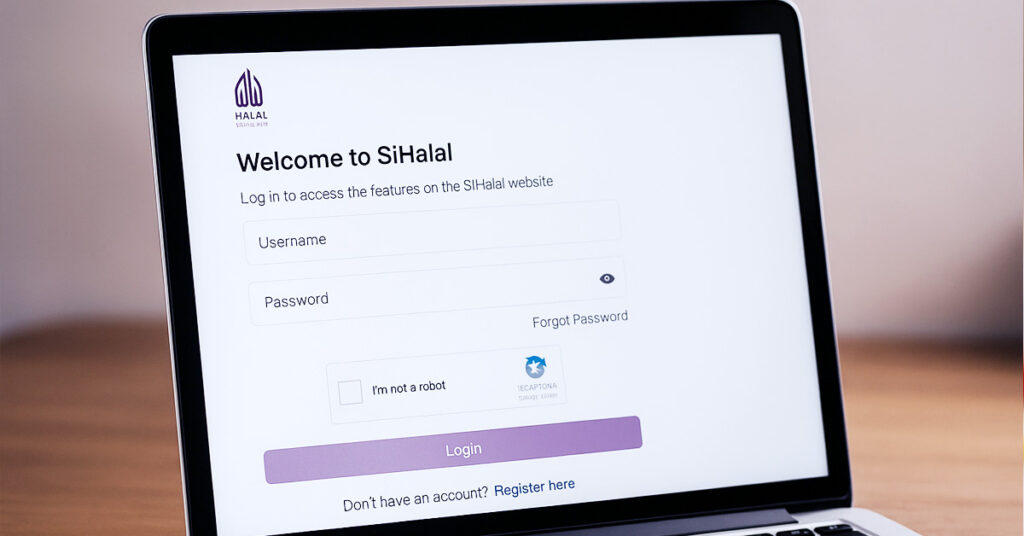
Getting halal-certified products requires following a specific process.
- Create SIHALAL Account: Register at ptsp.halal.go.id, which serves as Indonesia’s official halal certification portal and the mandatory starting point for all halal certifications.
- Select Halal Inspection Agency: Choose from authorized halal inspection agencies to conduct your comprehensive facility and process audit, ensuring they have expertise in your specific product category
- Document Upload and Submission: Upload all required information and documents as specified by BPJPH, including:
- Halal Product Assurance System (SJPH/HAS): Your comprehensive internal system for maintaining halal standards
- Ingredient Lists: Complete documentation of all raw materials and their halal certification status
- Manufacturing Process Flowcharts: Detailed diagrams showing every step of your production process
- Facility Audit Execution: The chosen inspection agency conducts thorough audits of your facilities and reviews your production processes to verify compliance with established halal standards and requirements
- MUI Religious Review: Following successful audit completion, the Indonesian Ulema Council (MUI) reviews your case documentation and issues a fatwa that officially confirms your products meet Islamic law requirements
- Official Certificate Issuance: BPJPH issues your official halal certificate upon MUI approval, granting you legal authorization to display the halal label and sell your certified halal products in the Indonesian market
Benefits of Halal Certification
Market Access and Global Reach
Halal certification offers significant benefits for businesses, especially in the food and beverage industry, unlocking access to Indonesia’s large Muslim market, the world’s biggest demographic. This certification also positions businesses to serve international markets where halal-certified products are in high demand, opening doors to export opportunities across Muslim-majority countries.
Quality and Consumer Trust Signal
Halal certification should be understood not merely as a regulatory compliance mechanism, but rather as a powerful signal to consumers that your products meet stringent quality and safety standards. This quality assurance enhances consumer confidence and fosters sustained customer loyalty over extended periods, as consumers associate halal certification with premium product standards and ethical business practices.
Legal Compliance and Risk Mitigation
For numerous product categories, particularly those within the food and beverage sector, halal certification is mandated under the Indonesian regulatory framework and sets out specific requirements that must be satisfied. Meeting these requirements ensures uninterrupted market access and helps business entities avoid substantial compliance-related expenditures, regulatory complications, and potential market exclusion penalties.
Competitive Advantage and Brand Differentiation
Certified products enjoy enhanced competitive positioning, as consumer demographics increasingly seek out brands that demonstrate respect for their dietary requirements and fundamental values. This differentiation becomes particularly valuable in crowded marketplaces where consumers have multiple options and prefer brands that align with their religious and cultural preferences.
Operational Excellence and System Improvements
The halal certification process encourages companies to enhance their internal operational systems, which results in improved overall quality metrics and operational efficiency parameters. This systematic approach to quality management often leads to better supply chain control, enhanced documentation practices, and more rigorous process monitoring across all business operations.
Strategic Business Decision
In a market environment as dynamic as that of Indonesia, obtaining halal certification represents both a legal necessity under applicable regulations and a strategic business decision to optimize market positioning. Companies that proactively pursue certification gain first-mover advantages and establish stronger market presence before competitors enter the space.
Preparing for Your Halal Audit
Before the audit begins, you need several things in place. Your Halal Product Assurance System must be operational, and you must appoint a Halal Supervisor who is Muslim (this became mandatory under Government Regulation 42/2024). Your facilities and equipment need proper separation from any non-halal materials or processes.
Your document package should include business licenses (NIB), detailed information about raw materials and suppliers, production process flow diagrams, sanitation standard operating procedures, and training records. Each document serves a specific purpose during the audit stage.
Auditors will examine your manufacturing processes, check for non-halal substances, review your supply chain controls, and verify that your halal supervisor understands halal requirements. They’re looking for a comprehensive halal product assurance organization throughout your operation.
Special Paths for Small Businesses
Small businesses (UMK/MSMEs) have additional options, including self-declaration for certain low-risk product categories. This streamlined process still requires evidence that you meet halal standards, but it’s less complex than full certification.
The Indonesian government offers facilitation programs to help small businesses prepare for the October 2026 deadline. Common pitfalls include incomplete documentation, inadequate facility separation, and insufficient training for key personnel.
Even with self-declaration, you need proper documentation showing your ingredients are halal, your processes avoid contamination with haram substances, and your staff understands halal requirements.
Foreign Products and International Recognition

The 2026 extension for imported products gives foreign companies more time to comply, but the scope varies. Some advisories exclude meat products from certain extensions, so check the latest regulations carefully.
Indonesia recognizes foreign halal certification bodies through mutual recognition agreements. However, foreign exporters must register their halal certificates in the SIHALAL system through their Indonesian importers or authorized representatives.
The process involves pre-deal checks to ensure your foreign halal certification meets Indonesian requirements, registering with accepted certification schemes, and applying for proper labeling permissions. International cooperation makes this smoother, but you still need local expertise.
People and Governance Requirements
Your halal supervisor plays a crucial role and must meet specific qualifications, including being Muslim and completing required training. This person oversees your internal halal team and manages supplier assurance programs.
You’ll need clear procedures for when to use external labs for testing, how to obtain ingredient attestations from suppliers, and how to document decisions for the audit trail. The Minister of Religious Affairs has specific guidelines for personnel qualifications.
Your team should understand Islamic law as it applies to your products and processes. This includes recognizing haram substances, understanding proper animal slaughter requirements, and knowing how to handle genetically engineered products if relevant to your business.
Costs, Timelines, and Renewals
Certification costs depend on your product scope, number of facilities, and testing requirements. Lead times vary based on halal inspection agency capacity and whether you need corrective actions after the initial audit.
Renewals are necessary when product compositions or manufacturing processes change. Government Regulation 42/2024 allows earlier renewal filing, giving you more flexibility in planning.
Budget for ongoing costs beyond initial certification. These include annual surveillance audits, testing for new ingredients, and updating documentation when you modify processes or add new products to your halal-certified portfolio.
Labels, Marks, and Market Entry
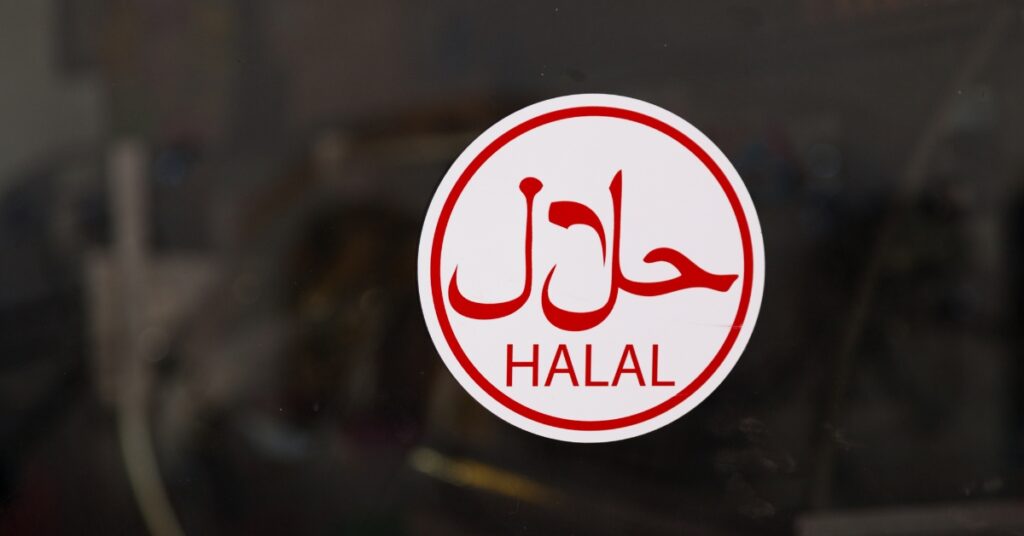
Once certified, you can display the “Halal Indonesia” logo on your products. The logo has specific placement, font, and visibility requirements that you must follow exactly. Halal labels must be clear, durable, and easily visible on packaging and should include certification numbers to ensure compliance and consumer clarity. Non-halal products need clear “non-halal” markings to avoid consumer confusion.
Retail and e-commerce platforms increasingly check halal status before listing products. If you have mixed portfolios with both halal and non-halal products, you need clear systems to prevent mix-ups and maintain consumer trust. For non-halal products, you must provide clear non-halal information on the label, including specific signs or descriptions, and specify if the product contains non-halal ingredients.
The halal label gives you a competitive edge in the Indonesian market, where a significant portion of consumers actively seek halal-certified products. This applies to food additives, household appliances with food contact, medical devices, and other product categories.
Separation of Halal and Non-Halal Products
Maintaining a clear separation between “halal” and “non-halal” products (“Segregation Requirements”) is intended to serve as a cornerstone of the “halal certification process.”
Production Line Segregation Requirements
Processing Equipment and Utensils
- Dedicated Equipment: Use separate processing machines, mixing bowls, and utensils exclusively for halal products to prevent cross-contamination
- Cleaning Protocols: Establish thorough cleaning procedures between halal and non-halal production runs if using shared equipment
- Equipment Marking: Clearly label all halal-dedicated equipment with visible markers or color-coding systems
- Example: A bakery producing both regular and halal bread must use separate ovens, mixers, and preparation surfaces, or implement validated cleaning procedures between production cycles
Storage Area Controls
- Separate Storage Zones: Maintain physically separated storage areas for halal raw materials, work-in-progress, and finished products
- Clear Labeling Systems: Use prominent signage and labeling to identify halal storage areas and prevent staff confusion
- Temperature Control: Ensure halal-dedicated refrigeration and freezer units where temperature-sensitive products are involved
Supply Chain Management Checklist
Supplier Verification
- Halal-Certified Suppliers: Source all raw materials exclusively from suppliers with valid halal certificates
- Documentation Requirements: Maintain current halal certificates and attestation letters from all ingredient suppliers
- Regular Audits: Conduct periodic verification of supplier halal status and renewal of certifications
Transportation and Logistics
- Dedicated Delivery Vehicles: Use separate transport vehicles for halal products or implement thorough cleaning protocols
- Loading Dock Procedures: Establish clear procedures for receiving halal materials at designated dock areas
- Chain of Custody: Maintain documentation tracking halal products from the supplier to your facility
Packaging and Labeling Controls
- Halal-Certified Packaging: Use packaging materials that meet halal standards and are certified accordingly
- Contamination Prevention: Ensure packaging lines are clean and dedicated to halal products during production runs
- Label Verification: Apply correct halal certification labels and ensure non-halal products are clearly marked
- Example: A snack manufacturer must use halal-certified packaging films and ensure labeling equipment doesn’t transfer non-halal residues to halal product packages
Distribution and Sales Segregation
Warehouse Management
- Separate Storage Sections: Maintain distinct warehouse areas for halal and non-halal finished products
- Inventory Tracking: Use separate inventory codes and tracking systems to prevent mix-ups during picking and shipping
- Staff Training: Train warehouse personnel on proper handling procedures and identification of halal products
- Example: A food distributor must store halal-certified canned goods in designated warehouse sections with clear aisle marking and separate picking procedures
Enforcement and Penalties
Indonesian authorities conduct regular inspections to verify ongoing compliance. Violations can result in administrative sanctions such as a written warning, fines, and product withdrawal from the market.
Best practices to avoid enforcement issues include maintaining accurate records, promptly reporting any changes to ingredients or processes, ensuring your Halal Supervisor stays current with training, and conducting internal audits before official inspections.
The penalties for non-compliance issues can significantly impact your business, so it’s worth investing in proper systems from the start.
Verifying Certificates and Due Diligence
Buyers and regulators can verify halal certificates through BPJPH’s “Check Halal Product” database. This system shows certificate validity, covered products, and certification details. Self-declaration, conducting due diligence on suppliers or partners, and cross-checking their certificate numbers, expiration dates, and covered product categories. The database helps prevent fraud and ensures you work with genuinely halal-certified suppliers.
This verification system supports the entire supply chain by making it easy to confirm halal status at every level.
Company-Type Checklists
Small Businesses (UMK): Focus on basic documentation, simple separation procedures, and self-declaration options where available. Use government facilitation programs to prepare for the 2026 deadline.
Medium/Large Companies: Implement comprehensive Halal Product Assurance Systems, appoint qualified Halal Supervisors, and establish robust supplier verification programs. Your larger scale brings additional responsibilities.
Importers/Exporters: Master the mutual recognition system, maintain relationships with foreign halal certification bodies, register certificates properly in SIHALAL, and ensure your local representatives understand Indonesian requirements.
Top 10 Common Audit Problems and Solutions
- Incomplete Halal Product Assurance System: Develop comprehensive procedures covering all aspects of your operation
- Inadequate facility separation: Install physical barriers and establish clear cleaning protocols
- Missing supplier documentation: Require halal certificates or attestations from all suppliers
- Unqualified Halal Supervisor: Ensure your supervisor meets religious and training requirements
- Poor record keeping: Establish systems for tracking ingredients, processes, and changes
- Contamination risks: Identify and eliminate cross-contamination possibilities
- Inadequate staff training: Train all relevant personnel on halal requirements
- Missing process documentation: Document every step that could affect halal status
- Supplier verification gaps: Regularly audit suppliers and verify their halal status
- Change management failures: Report all ingredient or process changes promptly
In such cases where exceptions or unique circumstances arise, companies should consult with BPJPH or their halal inspection agency for guidance.
Looking Forward: Building Long-Term Success
Indonesian halal certification isn’t just about meeting legal requirements; it’s about building consumer trust in a market with the world’s largest Muslim population. Companies that embrace halal standards often find they improve their overall quality systems and gain competitive advantages.
The certification landscape continues evolving, with new product categories potentially requiring certification and international cooperation expanding. Stay informed about regulatory changes and maintain strong relationships with your halal inspection agency and local representatives.
Success in the Indonesian market requires understanding that halal certification represents more than compliance; it demonstrates respect for local values and commitment to serving Indonesian consumers properly. This approach builds lasting business relationships and sustainable market presence.
Remember, the October 2026 deadline for small businesses and imported products is approaching quickly. Start your preparation now to avoid last-minute rushes and potential market access issues. The companies that plan ahead will be best positioned to thrive in Indonesia’s dynamic and growing market.
Ready to Apply or Extend Your Visa?
Let our visa specialists handle your application.








